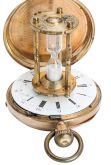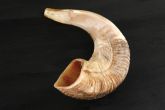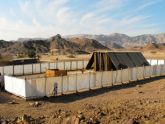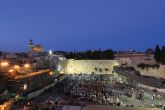×


We have detected your country as:
Please click here to go to the USA website or select another country from the dropdown list.
by: Rev, Rebecca J. Brimmer, International President and CEO

Photo by Igor Zubkis/shutterstock.com
We are living in perilous times just as foretold in 2 Timothy 3; the sickness of these days is clearly evident. Recently we have seen the P5+1 (US, Russia, China, France, UK and Germany), representing more than half the world’s population, make an agreement with Iran. This seems ludicrous in the face of their continued cursing of Israel and the West, especially the United States. Russia continues to be an aggressor nation, partnering with Iran while at the same time waging war in Ukraine, and testing the West with air space incursions. They are upping their nuclear capability at the same time that the United States is making cutbacks in military readiness. We are shocked to learn of the US abortion industry selling the body parts of aborted children and the callous attitude of abortion practitioners. Sexual immorality has become the norm. Lawlessness has increased. The believing community is heartsick.
Many in the Christian world are saying that we are in the “end times.” Interestingly, many in the Jewish world are saying similar things. When I had my refrigerator worked on recently, the repairman commented on the times we are living in, saying “Gog and Magog is near.” Others are speaking freely about the coming of Messiah. Some Jewish writers are saying that the Messiah will come at the end of a shmitah year (the biblical seventh year of sabbatical for the land). Others talk about the concept of chavlei Moshiach (birth pangs of Messiah), saying that we are feeling the birth pangs, and the coming of Messiah is near.
In the midst of all our hopes, concerns and fears we need to remember that our God is with us.
“I will lift up my eyes to the hills—from whence comes my help? My help comes from the LORD, who made heaven and earth. He will not allow your foot to be moved; He who keeps you will not slumber. Behold, He who keeps Israel shall neither slumber nor sleep. The LORD is your keeper; the LORD is your shade at your right hand. The sun shall not strike you by day, nor the moon by night. The LORD shall preserve you from all evil; He shall preserve your soul. The LORD shall preserve your going out and your coming in from this time forth and even forevermore” (Ps. 121:1–8).

Photo by Gregory Gerber/shutterstock.com
There is also a renewed interest in the biblical timetable as Christians and Jews are taking notice of the combination of biblical feasts, end of the shmitah year and the final blood moon in a rare tetrad (September 28—the Feast of Tabernacles). In light of all the signs in the heavens, many are calling the faithful to repentance, recognizing that the only cure for our times is to be found in the Lord. Our August teaching letter, “A Call to Repent,” discussed the emphasis on repentance in the month of Elul. If you haven’t seen it, I encourage you to go to www.bridgesforpeace.com and read it now. I invited our readers to join the Jewish people in a special time of repentance leading up to the Day of Atonement (Yom Kippur). In this teaching letter we will continue to encourage participation with the Jewish people during the special times God has appointed. Known by some as the Jewish feasts, the Bible calls them the Feasts of the Lord. The time between now and the end of the Feast of Tabernacles (October 5) is very significant. Let’s join the Jewish people in observing God’s timetable in this special year.
A moed (מועד) is an appointed time when God asks His people to meet with Him. This word is found 223 times in Scripture. If you ask your Jewish friends what a moed is, most likely they will tell you that it is a feast, and they are right! The biblical feasts listed in Leviticus 23 are all referred to as moedim (plural of moed) which can be translated “set times, specific appointments with God, appointed times, solemn times, or congregation.”
In Exodus 23:14–17 the three pilgrimage festivals are listed: Pesach (Passover), Shavuot (Pentecost), and Sukkot (Feast of Tabernacles). During these three feasts, all Jewish men were commanded to come up to Jerusalem to worship God as a congregation. I believe that one of the reasons God instituted the feasts is that He wanted to have His people meet with Him on a regular basis and He wanted them to reflect on His actions and understand His character. Many Christians view the feasts as part of the Old Testament (Tanakh) and don’t want to celebrate them. They seem to forget that Yeshua and the early Church celebrated the feasts! The prophet Zechariah tells of the future time when all the nations will come to Jerusalem for the Feast of Tabernacles. Why miss out on the blessing in the meantime?

Photo by Patty Nelson
Frequently in Scripture, we see the term “tent of meeting.” The word for “meeting” in this phrase is moed, and it refers to the Tabernacle, a place to meet with the Lord, a place of sacred encounters with the Most High God. Scripture says that, after meeting with God, Moses’ face glowed so much that he had to cover it (Exod. 34:30–33). Now, that is an awe-inspiring concept. Although I have never seen someone’s face glowing to the extent that Moses’ did, I have seen people changed after a meeting with God and it often shows on their countenance. God has always desired to meet with His people. In Genesis, at the very beginning of His interaction with mankind, we see that He created Adam and Eve and put them in a garden where He met with them. Throughout the Scriptures, we find accounts of God meeting with men and women.
For the entire month of Elul, the Jewish people put an emphasis on repentance to prepare themselves for the fall holidays. On the first of Tishrei the Feast of Rosh HaShanah, literally the Head of the Year and roughly translated as New Year, is observed. (See chart for dates in 2015). In the Bible this feast is called Yom Teruah (Day of Blowing [the shofar]). For the next ten days (called the Days of Awe) all will intently prepare themselves for the most holy day of the biblical calendar, Yom Kippur (Day of Atonement). This period of time is called the High Holy Days.
During these days Jewish people flock to their places of worship. Let’s take a bit of time to look at each of these three elements.
Rosh HaShanah is observed on the first and second day of Tishrei, the seventh month of the Hebrew year. Nisan, when Passover is celebrated, is the first month (see Exod. 12:2). However, today Tishrei is also called the beginning of the year. So, Jewish people have two New Years! In the Mishnah (first written recording of Jewish tradition) we read, “The first of Tishrei is the beginning of the year as regards [the calculation of] years, of the shmitah cycle, the yovel (Jublilee) cycle, for planting [trees], and for produce” (Rosh HaShanah 1:1). Arthur Waskow writes, “This is then the new year for learning how a human being can turn toward God. Perhaps it is the head of the year because the head is raised toward heaven, away from the earth—while Pesach (Passover) celebrates the more earthly liberation, the freedom of our bodies [from slavery in Egypt].”
The first of Tishrei is also the day that Ezra read the book of the Law of Moses to the people at the Water Gate. “Then Nehemiah, who was the governor, and Ezra the priest and scribe, and the Levites who taught the people said to all the people, ‘This day is holy to the LORD your God; do not mourn or weep.’ For all the people were weeping when they heard the words of the Law. Then he said to them, ‘Go and eat of the fat, drink of the sweet, and send portions to him who has nothing prepared; for this day is holy to our LORD. Do not be grieved, for the joy of the LORD is your strength’” (Neh. 8:9–11 NASB).
This day ushers in the Ten Days of Awe, some of the most solemn days on the calendar. Remember that for the 30 days preceding Rosh HaShanah the Jewish people have been in an attitude of repentance, blowing the shofar every day and reading Psalm 27 at every service. On the last few days of Elul, a slichot (forgive me) period is typified by Psalm 130: “Out of the depths I have cried to You, O LORD; Lord, hear my voice! Let Your ears be attentive to the voice of my supplications. If You, LORD, should mark iniquities, O Lord, who could stand? But there is forgiveness with You, that You may be feared” (vv. 1–4).

Photo by Usoltceva Anastasiia/shutterstock.com
From Rosh HaShanah through Yom Kippur, the liturgy is expanded to include additional prayers. One of them, the Uv’chen (and therefore), has a beautiful threefold emphasis. As described by Arthur Waskow, “universally human, communally Jewish, and individually personal.” Thanks to Waskow we share the following translation:
“And therefore, Lord our God, cause all that You created to remember fully all that You have done; cause all Your creatures to revere Your doings and to tremble in Your presence; cause them all to act as one to do Your will wholeheartedly. For we know, Lord our God, that the strength of Your hand, the power of Your right arm and the awesomeness of Your Name rule over all creation.
“And therefore, Lord, give honor to Your people, praise to those who revere You, hope to those who seek You, confidence to those who await You, joy to Your land and gladness to Your city, triumph to the horn of David Your servant and light to the lamp of Messiah, child of Jesse—speedily and in our own day.
“And therefore, the righteous will see and be glad, the upright rejoice, and the faithfully loving celebrate in song while evil is silenced and all wickedness vanishes like smoke—for You will erase the tyranny of arrogance from the earth.”
Surely, as Christian believers in the God of Israel, we can join with the Jewish people in praying this prayer. Waskow explains, “It was written by Rabbi Yochanan ben Nuri during the worst Roman repression of the Jewish people and of Torah. The tyranny of arrogance whose removal from the earth they prophesy was indeed the Roman Empire. But in a broader sense, the prayer rejects the false unity that could be imposed upon the human race by any tyranny, and celebrates instead the unity of a free humankind in which every people and each person is ready to follow only God as King.”
Today, as in the ancient Roman Empire, we live in a time when tyranny is once again raising its ugly specter across the face of our world. Together the cry of our heart is lifted to our God in repentance (the theme of Rosh HaShanah and the Ten Days of Awe), forgiveness (the Day of Atonement) and hope for the coming of our Messiah (The Feast of Tabernacles).
As Christians we believe that we can and should come to God in repentance any day of the year. The Jewish people also believe repentance is a year-long reality. However, they also believe that these ten days are very important and that each year on the Day of Atonement God is making decisions about whose name will be written in the Book of Life for the coming year. Even though the 30 days of Elul were a time of serious introspection, they pale in intensity when compared to these ten days.
Eliyahu Kitov writes, “Out of His great love for His people, God seeks to be merciful and would prefer that men would repent rather than perish so that He may grant him good in the end. He therefore awaits and anticipates the repentance of those who transgress. In His abundant mercy He granted us special days when He is closest to us so that our penitence might be immediately accepted.” In Isaiah we read, “Seek the LORD while He may be found, call upon Him while He is near” (Isa. 55:6).
James wrote about approaching God in repentance, saying, “Draw near to God and He will draw near to you. Cleanse your hands, you sinners; and purify your hearts, you double-minded. Lament and mourn and weep! Let your laughter be turned to mourning and your joy to gloom. Humble yourselves in the sight of the Lord, and He will lift you up” (James 4:8–10).
_165_110_80.jpg)
Photo by ChameleonsEye/shutterstock.com
Special prayers, called slichot prayers, are prayed during the Days of Awe. A ceremony called Tashlich (Hebrew from the verb to throw) in which breadcrumbs are cast into a body of water symbolizes how God casts our sins into the deepest sea. “He will again have compassion on us, and will subdue our iniquities. You will cast all our sins into the depths of the sea” (Mic. 7:19).
“Also the tenth day of this seventh month shall be the Day of Atonement. It shall be a holy convocation for you; you shall afflict your souls, and offer an offering made by fire to the LORD” (Lev. 23:27). This is the most holy day on the biblical calendar. In Israel a holy hush comes over the land. The vast majority of the Jewish population takes it very seriously. The synagogues are full, as people who rarely attend will come on this day. Statistics show that about 85% of Israel’s population fasts on Yom Kippur which is astonishing when you consider about 50% of the population call themselves secular. Fasting on Yom Kippur is a total abstention from all food and liquids. The Bible says that souls should be afflicted—interestingly it seems that Yom Kippur is almost always a very hot day. In Israel’s semi-arid climate, everyone feels afflicted after 25 hours without anything to drink or eat. Children from the age of 12 (for girls) and 13 (for boys) are included in the fast. There is virtually no traffic on the streets; we don’t hear the sounds of radios or television. As with all Jewish holidays, Yom Kippur begins at sundown on one day and continues till sundown on the following day.
The word kippur ( כפור) means covering. From the same root we have the word “kippa,” the small round head covering worn by observant Jewish men. The Hebrew word for mercy seat is also derived from this root.
There are many beautiful elements to the Yom Kippur services. Some Jewish people sleep overnight in the synagogue or stand watch through the night so that the service doesn’t end for the entire day (and night). Some recite the prayer of Chassidic Rebbe Levi Yitzchak of Berditschev, “Lord of the world, I stand before You and before my neighbors—pardoning, forgiving, struggling to be open to all who have hurt and angered me. Be this hurt of body or soul, of honor or property, whether they were forced to hurt me or did so willingly, whether by accident or intent, whether by word or deed—I forgive them because we are all human. May no one feel guilty on my account. I am ready to take upon myself the commandment, ‘love your neighbor as yourself.’” I immediately think of Yeshua, who, when asked the greatest commandment, told us to love God with all our heart, mind, soul and strength and to love our neighbor as ourselves.
On Yom Kippur Isaiah 58 is read: “Is this not the fast that I have chosen: to loose the bonds of wickedness, to undo the heavy burdens, to let the oppressed go free, and that you break every yoke? Is it not to share your bread with the hungry, and that you bring to your house the poor who are cast out; when you see the naked, that you cover him, and not hide yourself from your own flesh? Then your light shall break forth like the morning, your healing shall spring forth speedily, and your righteousness shall go before you; the glory of the LORD shall be your rear guard” (vv. 6–8). Again I am reminded of the words of Yeshua when He spoke of the judgment of the nations (Matt. 25). He said that He would judge according to how the least of His brethren were treated. How we relate to one another is intricately linked to our relationship to the Father.
In this teaching letter we have looked at some of the biblical dates God has chosen for His people to meet with Him—moed days!
_132_165_80.jpg)
Photo by Moshe Shai/Ashernet
God also has a moed time, “a set time,” for the nations to show favor to Zion. The psalmist says: “You will arise and have mercy on Zion; for the time to favor her, yes, the set time [moed], has come. For Your servants take pleasure in her stones, and show favor to her dust. So the nations shall fear the name of the LORD, and all the kings of earth Your glory. For the LORD shall build up Zion; He shall appear in His glory. He shall regard the prayer of the destitute, and shall not despise their prayer” (Ps. 102:13–17).
Since the late 1800s, we have witnessed the Lord bringing the Jewish people home and building Zion. Jews arriving in Israel from the Diaspora (Jewish population outside Israel) often fall to the ground and kiss the earth in their deep happiness at coming to their homeland. During that same period of time, we have seen amazing archaeological discoveries. Many people are “taking pleasure in her stones and showing favor to her dust.” This is the time God is calling His people to arise and have mercy on Zion (Israel). It is the moed time to favor her. The Lord is building up Zion! Soon He will appear in His glory! It is His desire that the nations fear the name of the Lord and world leaders see the glory of God!

Photo by Igor Zubkis/shutterstock.com
The perilous state of our world is not a surprise to God. We are in the days leading up to the Messiah’s coming in glory. We are in a time when men and nations are making eternal choices. The Jewish people believe that the days between Rosh HaShanah and Yom Kippur are crucial days of judgment. I believe that the world is similarly in a time period when the decisions that are made will have eternal consequences. Nations will be judged for how they treat Israel and the Jewish people. (See Joel 3:1–2 and Matt. 25:1–46). We are now experiencing the birth pangs of Messiah.
We don’t know the time of Messiah’s return, but we know that now is the time to get ready. This is the time to draw near to Him, to repent, to love our neighbors and to feed the hungry. This is the time to partner with God as He fulfills His promises to the people of Israel. Soon this time of trouble will end when the birth pangs cease. As in a natural birth we rejoice in the birth of a child, so we will rejoice in the coming of our Messiah. While we wait in eagerness for the Lord’s return, let’s set our hearts to love the Lord our God and love our neighbor as ourselves.
In next month’s teaching letter we will look at the Feast of Tabernacles—a time of great rejoicing.
Cantrell, Ron. The Feasts of the Lord. 1999.
Chill, Abraham. The Mitzvot. Jerusalem: Keter Books, 1990.
Donin, Hayim Halevy. To Be a Jew. www.basicbooks.com, 1972.
Eckstein, Rabbi Yechiel. How Firm a Foundation. Brewster, Mass: Paraclete Press, 1984.
Kitov, Eliyahu. The Book of our Heritage. Feldheim Publishers, 1968.
Waskow, Arthur I. Seasons of our Joy. New York: Summit Books, 1982.
Wilson, Marvin R. Our Father Abraham. Grand Rapids, Mi: Eerdmans, 1989.
Zimmerman, Martha. Celebrate the Feasts. Minneapolis, Mn: Bethany House Publishers, 1981.
All logos and trademarks in this site are property of their respective owner. All other materials are property of Bridges for Peace. Copyright © 2024.
Website Site Design by J-Town Internet Services Ltd. - Based in Jerusalem and Serving the World.